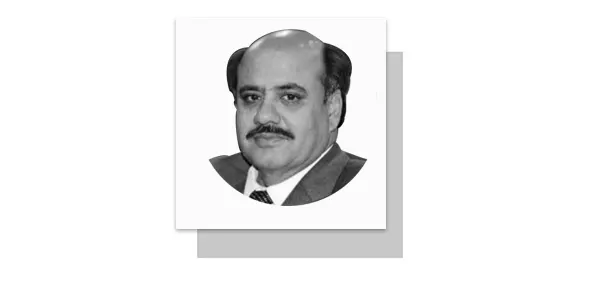SINCE the demise of Bashar al-Assad’s regime in mid-December 2024, the neighbouring nations and Western powers have been striving to maximize their influence in Syria. The external actor’s interference would have constructive and negative consequences. If these actors focus on humanitarian assistance and infrastructure development of the civil war-torn country, the Syrians will have relief from political instability and prospects for economic prosperity. However, the external actors have a political agenda—to govern Syria through their proxies to cater to their Middle Eastern schema. Hence, the external powerbrokers in Damascus will further deteriorate the situation.
Turkiye seems advantageous in Syria due to its proximity and patrons, Hayat Tahrir al-Sham (HTS) and the Syrian National Army militias. Both were responsible for the end of the Assad regime. Indeed, political stability in the country and Turkiye-Syria normalization facilitate over three million Syrian refugees residing in Turkiye to return to their homeland. Besides, Ankara might manage to rid itself of a security threat emanating from the south due to Kurdish nationalism. Ankara would destroy the People’s Protection Units (YPG), which is part of the Kurdistan Workers’ Party (PKK)—a designated terrorist group, with the assistance of HTS and the Syrian National Army. To accomplish these objectives, Turkish Foreign Minister Hakan Fidan visited Damascus and embraced the HTS after the end of the Assad regime. However, the Kurdish nationalism (PKK), which is entrenched in Syria and Iraq, elimination is difficult. PKK continues its survival efforts by sustaining guerrilla warfare against the Turkish Armed Forces.
Israel remains one of the most prominent spoilers of efforts to stabilize Syria and establish legitimate, democratic governance. Its expansion strategy is alarming. It captured Golan Heights from Syria in the 1967 Six-Day War. Legally, the Golan Heights is a Syrian territory that is recognized by the United Nations and held by Israel under military occupation. The ouster of Bashar al-Assad and the collapse of Syrian armed forces were taken as an opportunity by the Israel Defence Forces (IDF) to enter into the demilitarized United Nations buffer zone in the Golan Heights, monitored by a UN Disengagement Observer Force (UNDOF). The IDF has occupied Syrian land in the south of the country and killed and expelled hundreds of Syrians from their homes. Besides, IDF’s devastating aerial bombardment wiped out the Syrian air force and military capabilities and continuously caused fear among the Syrians.
The role of the Arab neighbouring states will be decisive, in addition to Turkiye and Israel. The representatives of the Syrian transitional government, a body formed to manage the transition from the Assad regime to a new government, have also reached out to its neighbours. Syrian Foreign Minister Asaad Hassan al-Shaybani has visited Riyadh, Saudi Arabia; Abu Dhabi, United Arab Emirates, Doha, Qatar and Amman, Jordan. Iraq’s intelligence chief made the trip to Syria. Damascus depends on the generous economic assistance of its Arab neighbours to reconstruct the infrastructure and improve the country’s financial health.
The United States, United Kingdom, France and Germany have increased their diplomatic manoeuvring in Damascus. The Foreign Ministers of Italy, France and Germany visited Damascus to re-establish ties with Syria. They will cajole Kurdish nationalism and the Syrian Kurdish fighting forces called the People’s Protection Units (YPG), Washington’s partner against the Islamic State in Syria, the Syrian Democratic Forces. Moreover, President Trump’s Middle East policy could be the extension of his previous administration initiatives, i.e., the US embassy moved to Jerusalem recognized Israel’s annexation of the Golan Heights, green lighted new West Bank settlements and abandoned the nuclear deal with Iran.
Trump nominated Mike Huckabee as the US Ambassador to Israel, a firm believer in Israel’s land claims, who once argued that there was “no such thing as a Palestinian.” He said, “Mike has been a great public servant, Governor and Leader in Faith for many years. He loves Israel and the people of Israel, and likewise, the people of Israel love him. Mike will work tirelessly to bring about Peace in the Middle East.” Trump also announced the nomination of Rep. Elise Stefanik (R-New York), a fierce critic of anti-Israel protests at American universities, as the US Ambassador to the United Nations. These appointments indicate the Trump Administration’s approach towards the Middle East, particularly Israel. Nevertheless, the Trump administration’s stance on Golan Heights will significantly impact Syria.
In conclusion, the situation in Syria remains complex, volatile and dangerous. Internal parties and their external backers are engaged in fierce competition to shape a post-Assad Syria. In this context, Syrian stakeholders must prioritize state and nation-building efforts. This is not only essential for ensuring sustainable internal security and economic prosperity but also for shaping a future that is stable and prosperous for all Syrians.
—The writer is Prof at the School of Politics and IR, Quaid-i-Azam University.









